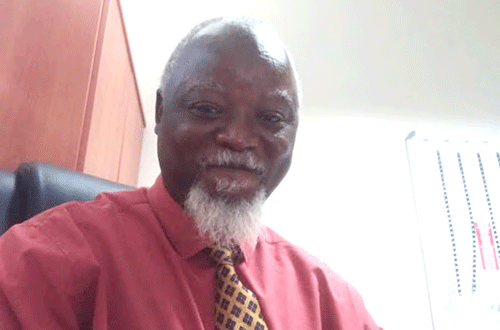Sawi Hausiku
RUNDU – Political commentator Ndumba Kamwanyah says the credibility of Namibia’s electoral process is in question and in doubt. He said this in an interview with Nampa on Friday when asked what his interpretation of the election process is thus far.
“Remember that Namibia is known for running effective election processes in the past. This is the first time we find ourselves in this situation where we have a lot of hiccups, challenges and doubts in the entire process,” he said.
The Presidential and National Assembly elections, which started last Wednesday, have left many voters feeling angry due to long queues, shortages of ballot papers, and technical failure of some equipment. This also led to opposition parties demanding that the El ectoral Commission of Namibia (ECN) halt voting and counting amid the election chaos countrywide on Thursday.
“The opposition parties signed a joint statement and this could be another legal implication for ECN,” he stated. Kamwanyah said all these events are not good for the countr y’s democracy. “This election has left doubts and questions in many people’s minds,” he said.
He said people turned up in large numbers to exercise their civic duty, but their hopes were dashed because of how ECN handled the process. The political analyst indicated that he also foresees legal complications following the extension of the election period, stating that he does not know which clause within the Electoral Act was used to extend the elections.
President Nangolo Mbumba, on the recommendation of the ECN, on Thursday issued a proclamation that elections be extended from 27 November to 30 November 2024.
Kamwanyah also questioned how the ECN ident i f ied the polling stations where el ections were extended. He questioned this, saying the shortage of ballot papers, long queues, voters being left behind by mobile stations and malfunctioning of tablets, were experienced countrywide.
Another political commentator, professor Lesley Blaauw, said following media reports, it is clear that ECN has administrative problems, which require attention. “All in all, the fact that we have had the opportunity to continuously monitor the outcomes is a positive. However, ultimately, whether or not it is acceptable to everyone would be determined by the position that parties will occupy to view the elections as free and fair,” he said.
He said as it stands, there is a fundamental problem with the administrative side of the elections which could cast doubt on the outcome. Blaauw stated that if an explanation can be given on the way things unfolded the way they did, people might accept the outcome. -Nampa


